Barney who? Barney Frank, the nemesis of many a blowhard on Capitol Hill where they flourish. He was often to be seen on C-SPAN boring into witnesses, preferably a stooge for a vested interest like automobile manufacturers demanding more subsidies, junk bond owning banks there to defend executive bonuses, or a Republican administration flunkies sweeping dirt under carpets. He went at each as the prosecuting attorney cross examining a well-known villain.
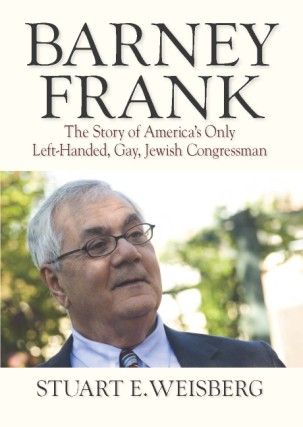
Only the most truthful and well-prepared witnesses limped away intact.
The Frank Test became a coin in Congress for thirty years. If Barney Frank could not find fault, then it was good to-go.
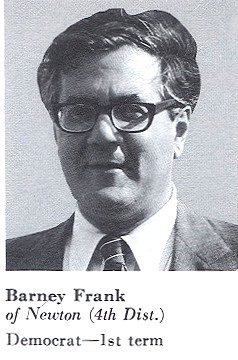
Mr Frank was born in 1940 in Bayonne, New Jersey where his father owned and ran a truck stop. His parents once hosted a reception for Eleanor Roosevelt in their home when he was a boy. He served in the United States House of Representatives from 1981-2013. He basked in the label, ultra-liberal.
His political career began when, a graduate student in political science at Harvard, he got involved in Kevin White’s mayoral campaign in Boston. Frank, whose graduate work was not compelling, found politics very compelling and worked night-and-day for the White campaign, and emerged as one of its masterminds. He was always there, always picked up the phone, always remembered someone who could help, always found what was lost, always thought of something to try… Reliable, dependable, creative, and accessible, he made himself invaluable.
When White became mayor he had obvious ambitions for higher office and spent most of his time in that pursuit. That left his de facto chief of staff Barney Frank in the office to take the calls and make the calls. (I say obvious because some time later when I spent a semester at Harvard on leave I observed the White administration from across the Charles River in Cambridge and White’s disintegrating ambitions were a spectacle.)
Frank found politics much more interesting than political science and did not complete the graduate degree. He took time off from city hall and worked for a congressman in Washington D.C. for two years and liked what he saw in the legislative world.
He kept solving problems at town hall, meeting more people, impressing others with his thick skin and tireless efforts. He ran for the Massachusetts state legislature, which has the quaint name of Massachusetts General Court, and won a seat in the lower house.
For eight years in the statehouse he advanced one liberal cause after another, e.g., low cost housing, abortion, civil rights, school bussing, and the like. Many people spout liberal causes and are satisfied with that, and Mr Frank, too, likes to spout, but unlike many others, when the spouting was done, he took committee work seriously and applied himself both the substance of reading and evaluating submissions, proposals, and evidence, and in learning the rules of procedure. He also employed researchers to dig and dig they did. Accordingly, he scored some publicity coups and some legislative successes.
A large, disheveled, left-handed Jew, representing a Back Bay constituency made good copy any time, and he attracted publicity. Plus he has a motor mouth, and a quick wit. On slow news days journalist knew they could get copy out of him, and he obliged on his terms. (The Back Bay is home to the purest, whitest, richest, most closed colonial aristocracy of Massachusetts. Upstarts like the Kennedys were barred from this society, having to make due with Brookline.)
At the time many liberals liked spouting about foreign affairs, but Mr Frank went on the banking and finance committees because that was where the money came from to fund liberal causes like low-income housing. The first thing he realised was that inefficiency and sweet-heart deals with labor unions made spending on liberal causes impossible. The first of his many crusades was to cut waste government where he made allies with conservative Republicans, and antagonised unions. The battles with the Massachusetts Bay Transit Authority became legendary. He rode the MBTA every day and charted its many failings against its exorbitant running costs and outlandish work practices, outlandish even by Australian standards. His spreadsheets on cost per customer mile traveled compared to other cities entertained viewers on news programs for weeks on end.
He also accepted no-win assignments on other committees where his vote would alienate some Democratic constituencies, like organised labor, but since he had already alienated them, he did the duty, sparing other colleagues the pain. They then in turn owed him favours.
In the financial crises of the Junior Bush years he was a Cassandra, warning of trouble ahead to be ignored, and then later as the wheel turned he was blamed for causing the trouble by predicting it. In hindsight Republican Bush administration officials even blamed him for not stopping them. That is political logic!
There is no doubt he was a one-man brains trust in Congress with some memorable turns of the phrase who had no small talk and no time for normal pleasantries. He was always all business all the time, right here, right now. Nor was he easily discouraged: Blunt, direct, acerbic, and well prepared. Here are a few examples.
1.This bill is the legislative equivalent of crack. It yields a short-term high but does long-term damage to the system and it’s expensive to boot.
2.People might cite George Bush as proof that you can be totally impervious to the effects of Harvard and Yale education.
3.Moderate Republicans are reverse Houdinis. They tie themselves up in knots and then tell you they can’t do anything because they’re tied up in knots.
4.They have become so attached to their outrage that they are outraged to lose it.
5.Southern racists were able to protect murderers only because their legislators exploited fears of federal power.
6.For those like Ben Carson, who just announced that it was a choice, I do want to say at 14 I did not choose to be a member of what I thought was the most hated group in America.
7.They can vote for every possible war that comes along and still be pro-life.
8.The runner slides into home with a thousand dollars in hand as a contribution to the umpire but the money will not effect the call….that is what we say about campaign contributions.
9.I’m left-handed, Jewish, and Gay, there is no majority I belong to. Well, maybe the overweight.
When an amendment he presented failed in committee, he re-worked it and presented it again, and again, and again. In so doing, he became a master of procedure. He also spent all hours trying to talk others around to his way of thinking. This talk, talk, talk reminded a little of the loquacious young George Wallace.
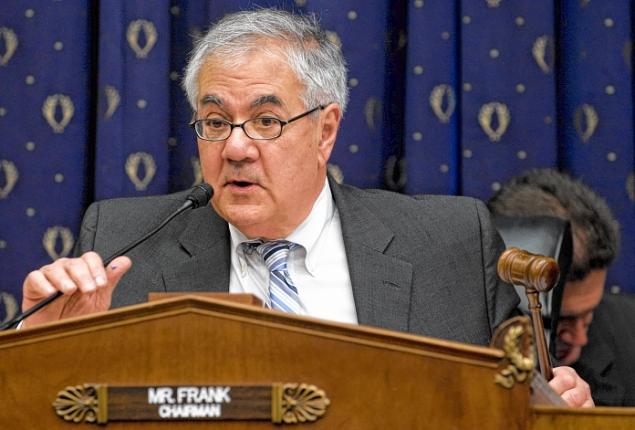
The descriptions of the joint House and Senate committees to harmonise bills and of the ad hoc committees called by President Bush to find common ground are delightful. In them John McCain comes off as a driven man who knows he has to be involved but has nothing to offer and takes his own sweet time in doing that. Bush Jr appears well meaning but lost.
But the severest criticisms are for the technicians Henry Paulson at Treasury and Benjamin Bernanke at the Federal Reserve whose faith in their own technical prowess led them to overreach.
On the other side of the coin Senator Barack Obama comes across as extremely able, well versed, and ready to compromise if it will do some good. While McCain was determined to be the centre of attention and when he got it, he had nothing to say on the subject, Obama was content to wait his turn and when it came he make concrete proposals that most could accept.
Mind, the telling is entirely one-eyed and ever partisan.
Frank’s other claim to fame is the public acknowledgement of his homosexuality in 1987. It was a long time in coming but a few years before he began telling family, friends, and then colleagues. There were whispers and finally an interview was arranged in which he would be asked the direct question to which he gave the direct answer. The double-life he had been living for years was difficult he had eruptions of temper, often directed at women, including some journalists on air. He was losing self-control and had enough sense to realise it. It would be better, he thought, to clear the air and let the chips fall. This is the longest chapter of the book and more interesting. I flipped through many of the remaining chapters at light-speed.
For a time his private life became very public, and the news was not always good. He did some stupid things. Hands up all those who haven’t.
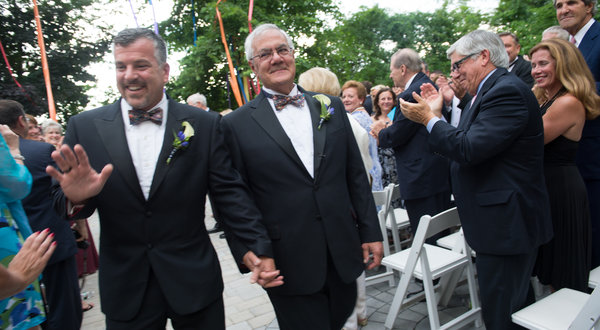 Frank seems to have found happiness.
Frank seems to have found happiness.
The book is replete with anecdotes and much play-by-play description which does nothing to illuminate the man and his formative experiences. Barney walks on water through most of it. I stress the uncritical nature of the book because it surprised me, coming, as it does, from a university press.
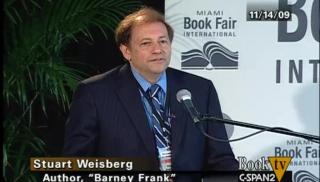 Stuart Weisberg
Stuart Weisberg
I chose it because of the publisher on the assumption it would be dispassionate and disinterested. Not so.
Skip to content
